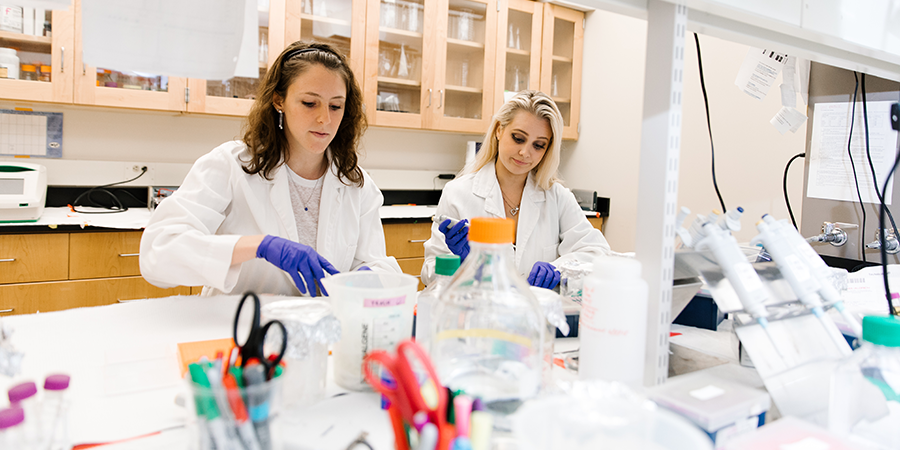We’re hiring!
We invite applications for three tenure-track faculty with a start date of July 2023! Successful candidates are expected to develop and maintain an active, extramurally funded research program with outstanding scholarship and to demonstrate excellence in teaching and mentoring of undergraduate students.
The department has outstanding teaching and research facilities including a vivarium, a microscopy suite, a cell culture room, common use molecular equipment, and dedicated wet labs for student/faculty research and a brand-new anatomy teaching lab.
As the student body at Providence College grows increasingly diverse, we have a strong preference for candidates who demonstrate a deep commitment to and proven ability in supporting the success of students from historically marginalized economic, social, and cultural groups.
Cellular and Molecular Biology, tenure track
In addition to research, the successful candidate should be able to teach Cell Biology and Molecular Genetics, Genetics and courses in their specialty area. Preference will be given to candidates who can also teach Developmental Biology and/or Cancer Biology.
See job posting for more details and how to apply.

Comparative Organismal Anatomy, tenure-track
We are open to considering any area of relevant expertise in the field of anatomy.
In addition to research, the successful candidate should be able to teach Comparative Anatomy, and Human Anatomy and Physiology. Additional courses taught by the position may include Animal Biology and Animal Behavior, Animal Physiology, and Junior/Senior Level Seminars in the candidate’s specific area of research.
See job posting for more details and how to apply.
Marine Biology and Ecology, tenure track
We are open to considering any area of relevant expertise in the environment. Examples of areas of interest: community response to climate change; conservation; surface and ground water hydrology; effects of contaminants, such as marine and coastal plastics; biological sequestration of carbon; and organismal responses to ocean warming and acidification.
In addition to research, the successful candidate should be able to teach Marine Biology, General Biology II (Ecology and Evolution), Marine Ecology and courses in their specialty area.
See job posting for more details and how to apply.





